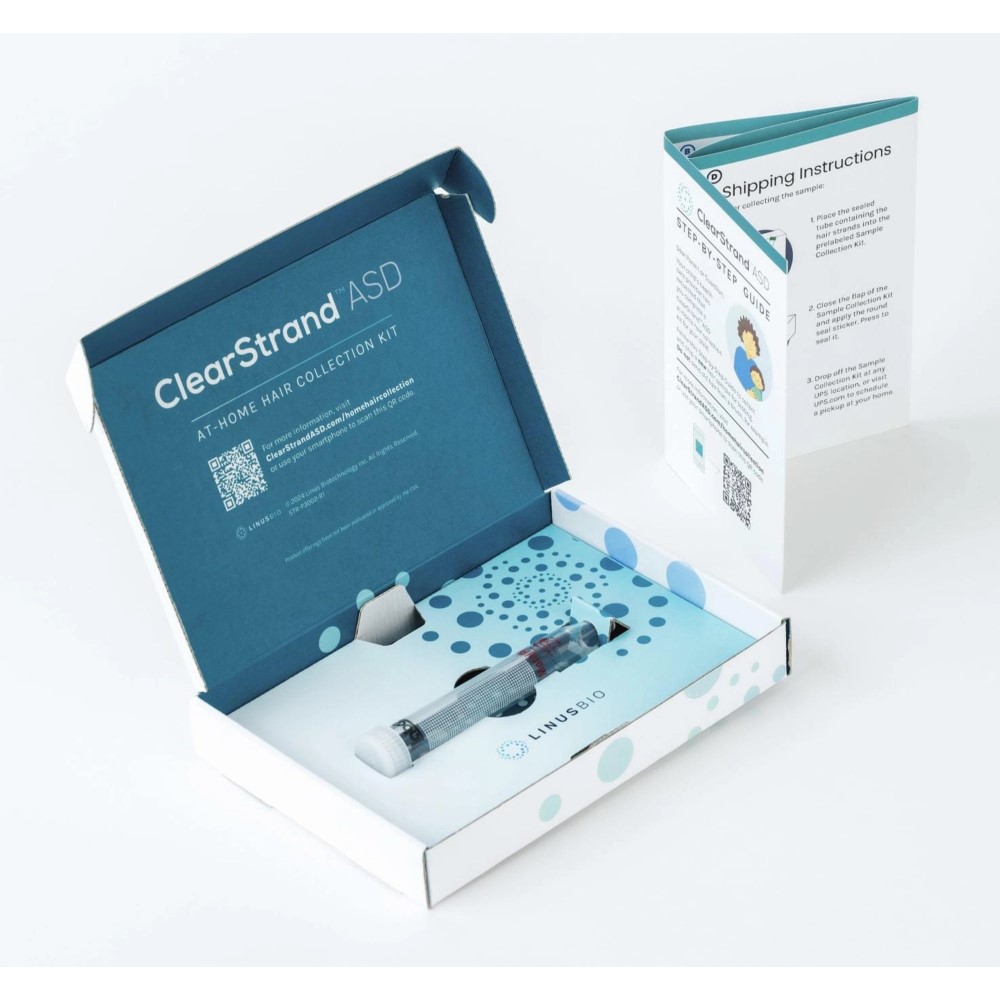
LinusBio Launches Groundbreaking ClearStrand-ASD to aid Health Care Providers in Ruling Out Autism Using a Single Strand of Hair
On Jun. 5, 2025, LinusBio announced ClearStrand-ASD™, a first-of-its-kind diagnostic aid for autism spectrum disorder (ASD). ClearStrand-ASD is a biochemical test that identifies a molecular signature predictive of autism in a strand of hair. It is designed to help physicians rule out the condition in children between one and 36 months of age when autism is a concern.
The test provides a negative predictive value (NPV) of 92.5% and can help providers identify children who are unlikely to be on the autism spectrum. Results may help inform decisions to refer a child for early intervention and for diagnostic evaluation by an autism specialist.
ClearStrand-ASD is a first-in-class biomarker test that analyzes an individual’s metabolism of essential and non-essential elements over time. LinusBio’s platform analyzes a single strand of hair using proprietary robotics and lasers in a state-of-the-art CLIA-regulated facility. Thousands of data points are generated for each patient, and with the help of AI and machine learning, it becomes possible to identify whether a patient has the molecular signature – a biomarker – associated with ASD.
ClearStrand-ASD must be ordered by a licensed health care provider. LinusBio enables caregivers to request the test from home through an independent telehealth provider. The test is intended for infants and toddlers who are at an elevated risk of autism, such as those who were born preterm, who have a sibling with autism, or who have demonstrated characteristics associated with autism. If the test does not detect the biomarker, it is unlikely the child has autism. If the test does find the biomarker, the child may need further professional evaluation. ClearStrand-ASD is available in 44 states (excluding CA, HI, MD, NY, RI, PA, and DC).
ClearStrand-ASD is a biochemical test intended to help health care providers rule out autism spectrum disorder (ASD) in children 1 to 36 months. The test analyzes a strand of hair to map the dynamic patterns of an individual’s unique biological responses at a molecular level to environmental exposures over time and uses an algorithm to assess the likelihood of autism. It is not a genetic test and must be ordered by a licensed health care provider (Rx only).
Tags:
Source: LinusBio
Credit:
